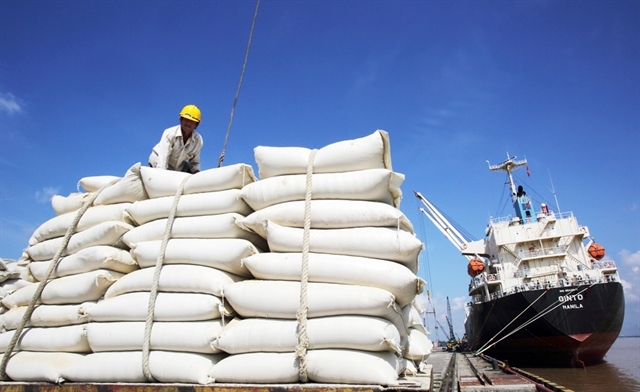The condition that traders must own, rather than lease, warehouses for storing rice is inconsistent with market principles. It increases entry costs, creates challenges for small and medium-sized enterprises, and contradicts the spirit of Resolution No. 68-NQ/TW on promoting the private sector, which emphasises "regulation, not prohibition".

HÀ NỘI — The Việt Nam Chamber of Commerce and Industry (VCCI) has submitted its feedback to the Ministry of Industry and Trade regarding the draft decree amending rules on the export of rice, calling for the elimination of barriers and the creation of a transparent, low-compliance-cost business environment.
The VCCI addressed in its feedback several provisions of Decree 107/2018/NĐ-CP and recommended removing Decree 01/2025/NĐ-CP, both of which regulate rice export businesses.
According to the VCCI, the requirement under Decree 107/2018/NĐ-CP that traders must own (rather than lease) warehouses for storing rice is inconsistent with market principles. This condition increases entry costs, creates challenges for small and medium-sized enterprises, and contradicts the spirit of Resolution No. 68-NQ/TW on promoting the private sector, which emphasises “regulation, not prohibition”.
The VCCI also proposed removing a provision requiring newly certified rice exporters to maintain a minimum reserve of 1,250 tonnes of rice within 45 days of receiving their business licence, and to continue maintaining this reserve until they achieve export results. The organisation argued that this rule imposes a significant financial burden and creates unnecessary barriers, especially when enterprises may not yet have secured export contracts.
Meanwhile, the chamber recommended removing Decree 01/2025/NĐ-CP entirely. This decree prevents unlicensed enterprises from outsourcing rice exports to licensed exporters. According to the VCCI, this restriction reduces the ability of domestic businesses to maximise production capacity and seize opportunities in foreign markets.
The organisation also objected to a provision allowing authorities to revoke export licences if a company fails to submit rice reserve reports within 45 days of being reminded. It argued that such cases should be treated as administrative violations and handled through appropriate administrative measures, rather than by stripping businesses of their right to operate. — VNS





